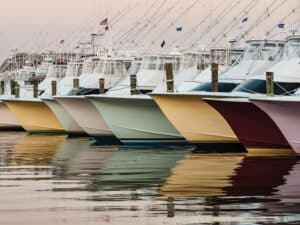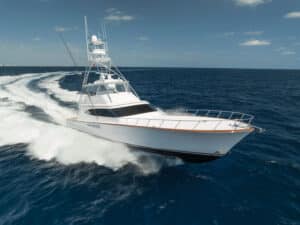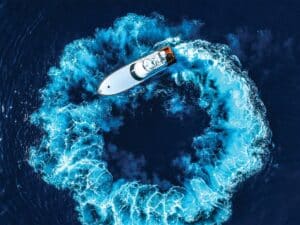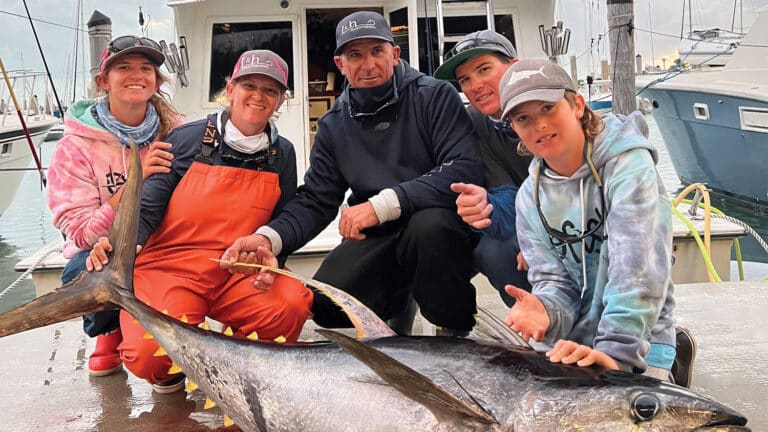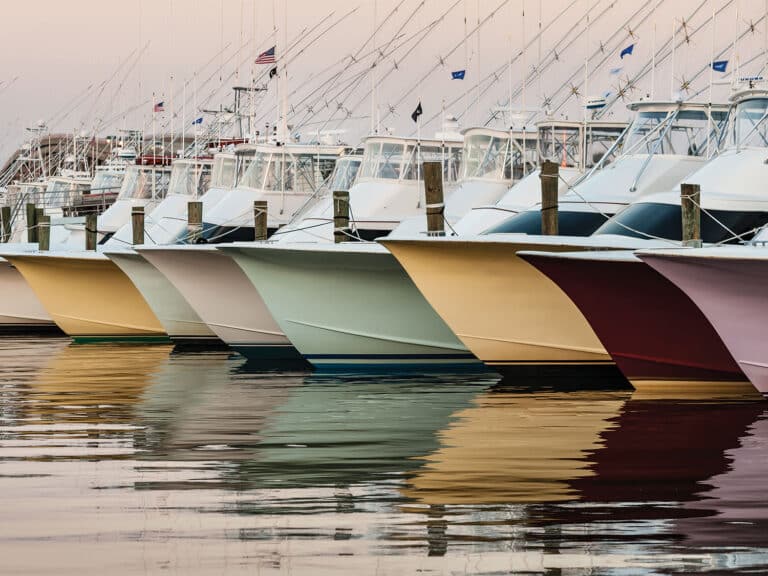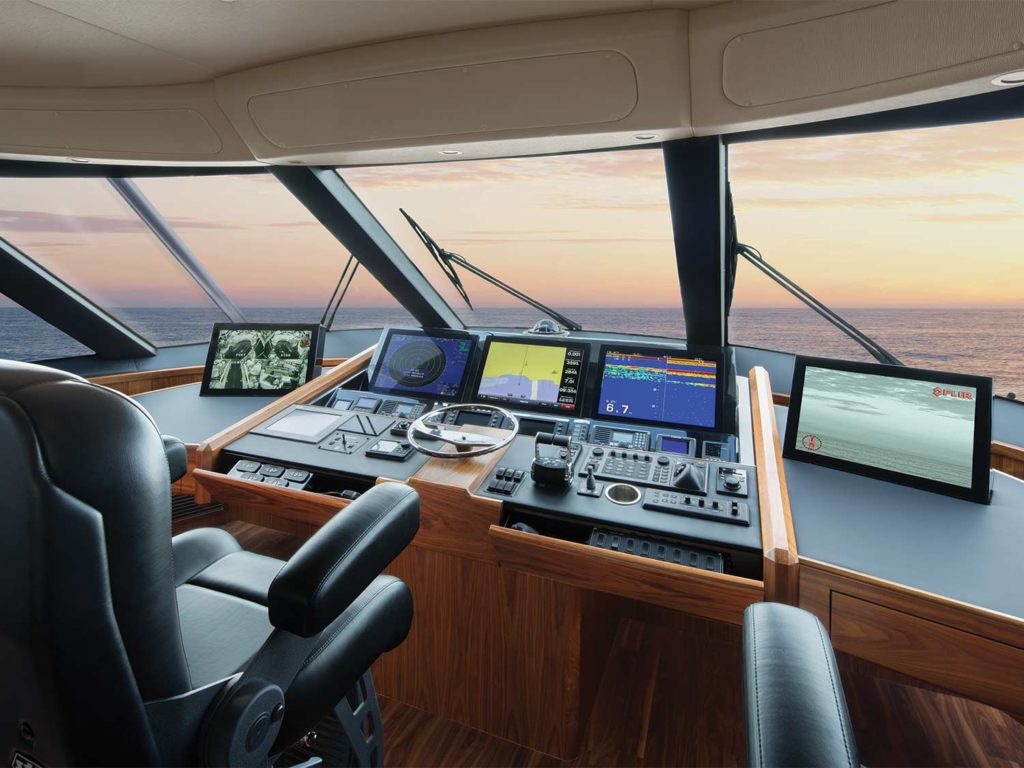
“Skip, are you going to ban the sonar boats from your events? They seem to be winning quite a few tournaments recently.”
That’s one of the questions I have been asked a lot lately. Like most electronics, sonar is usually only as good as the operator, and you also must be in the right area. In the words of a seasoned veteran who really knows how to use his gear, “When it’s calm, I’ll kick your butt, but when it’s rough, all I mark is the bottom and 747s.”
Watch: Marlin in the dredge!
I remember when dredges first came along. I heard the same question: Will we ban them in tournaments? It all started with fishing a simple dredge on a hand line, then it progressed to huge electric reels that can easily retrieve the giant triple-tiered dredges we use today. It didn’t take long for everyone to get one, and now when you walk down the dock, everyone has two big LP reels ready to go. There’s even a new 24-volt LP that’s faster and, yes, more expensive.
I am sure in the old days, people found a lot of the new inventions to be “unfair.” But that’s the technological arms race in sport fishing.
How many teasers do we really need? Daisy chains, spreader bars, and mudflaps as big as a 200-pound tuna. A lot of tournaments allow unlimited teasers but only four to six hook baits.
When we first started using radar to find birds, you had to constantly fiddle with the settings. Nowadays, the new digital radars all have an automatic setting for bird mode, and even an inexperienced captain can find ‘em from miles away. Go back a few more years, and it was the fast boats that had the advantage. There are tournaments that still have Bimini starts, which not only hurts the slow boats, but it also punishes them by having to run through the wakes of the faster boats. It isn’t so bad in the Bahamas, where you don’t have to run that far to fish, but in many other places, it does handicap the slower boats that now can’t fish as long. Should we make everyone do 17 knots to be fair? Then we also have to make sure everyone carries the same amount of fuel, to be fair. Back in the early 1980s, I chartered a plane before a big tournament in Texas to fly out over the Gulf so we could look for weed lines, oil rigs and good water, and a lot of people thought that was unfair also. Where does it end?
What about professional crews as anglers? Some tournaments don’t allow professionals to angle; while others allow the rod to be passed once to the angler; and some are just jungle rules, where pretty much anything goes.
Read Next: Learn to make the best of what you have when it comes to rigging baits.
Even when I was fishing for world records, we had a few electronics to help us—I relied mostly on a Furuno depth finder and radar. But what I really needed was a good angler. That was the key. And I believe the same thing goes for these boats that have sonar. You can find them, but you still need to catch them. Then there are the tournaments that reward the team who catches the biggest fish. Everyone still has a chance to catch a big one without all the fancy electronics.
Maybe we should make tournaments like the Masters Angling Tournament, where you use the same line, same baits, only two teasers, and fight the fish from a dead boat. But that’s just a thought….
This article was originally published in the August/September issue of Marlin.

